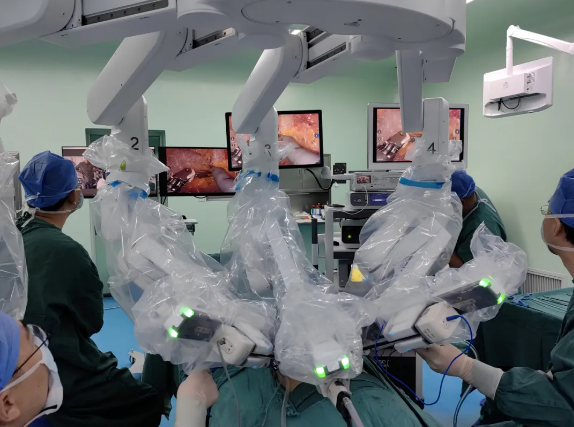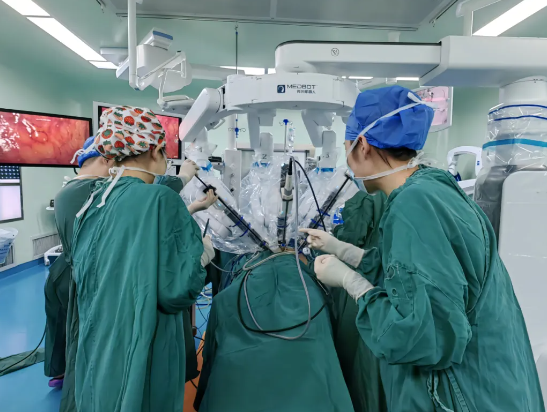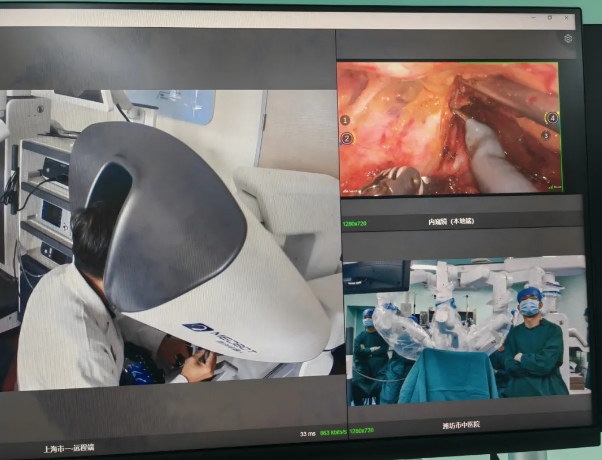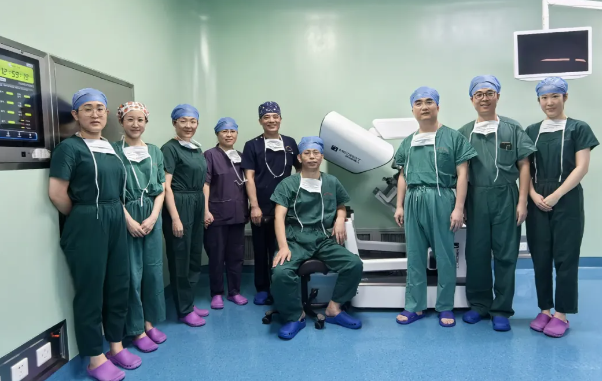- News
Breakthrough! First Case, Completed!
https://mp.weixin.qq.com/s/bde1kZxWIQUkqcN8EEwTpg
Remote Robotic Surgery Across Provinces: Shanghai General Hospital Joins Hands with Experts in Weifang
During the National Day holiday, leveraging the power of 5G networks and robotic technologies, experts from Weifang Traditional Chinese Medicine Hospital collaborated with specialists from Shanghai to perform a successful remote robotic surgery spanning a thousand kilometers. This marks the first remote robotic surgery between Shandong and Shanghai.


The Surgeon Operated from Shanghai, While the Patient Was in Weifang
Recently, Mr. Liu, a local citizen, was diagnosed with prostate cancer at the Urology Department of the East Campus of Weifang Traditional Chinese Medicine Hospital. A multidisciplinary team (MDT), led by Dr. Wang Yongchuan, Deputy Director of Weifang Traditional Chinese Medicine Hospital, discussed the case and decided to collaborate with Dr. Han Bangmin, Deputy Director of Shanghai General Hospital, to perform a 5G-powered remote robotic surgery due to the complexity of the patient's condition.
On October 4, 2024, Dr. Han Bang Ming operated from Shanghai while Dr. Wang’s team assisted from the operating room in the East Campus of Weifang Traditional Chinese Medicine Hospital. Dr. Han controlled the surgical console in Shanghai, remotely manipulating the robotic arm located in Weifang. Every intricate movement was clearly visible on high-definition displays, and the robotic arm executed precise operations such as tumor resection and fine suturing with flawless accuracy across the thousand-kilometer distance. The two-hour surgery was completed smoothly.
The patient recovered well, walking and eating normally by the following day.

Empowering Healthcare Through Technological Innovation and Resource Sharing
Dr. Wang explained that the success of this surgery was made possible by China’s domestically developed 5G-enabled surgical robots. The system integrates advanced technologies, including high-precision robotic arms, high-definition imaging, and intelligent navigation control. With minimal latency, exceptional precision, and high reliability, the remote surgical process ran seamlessly. The clear visuals and stable responsiveness of the robotic arms ensured smooth interaction and communication between the surgical teams at both hospitals, creating an experience virtually indistinguishable from performing surgery locally.
Compared with traditional laparoscopic surgery, robotic-assisted laparoscopy offers clearer visualization, enhanced precision, minimal trauma, reduced bleeding, and faster recovery times.

Since July 8, 2024, when Dr. Wang performed the first robotic-assisted minimally invasive surgery at Weifang Traditional Chinese Medicine Hospital, over ten complex urological tumor surgeries have been successfully completed, all achieving satisfactory outcomes.
The success of this remote robotic surgery has overcome geographical barriers, significantly expanding the possibilities for remote medical treatment. This collaboration demonstrates the ability to share high-quality medical resources, providing patients in Weifang with timely and advanced surgical services from Shanghai experts without needing to leave their hometown.
Looking ahead, Weifang Traditional Chinese Medicine Hospital will continue to pursue innovation in medical technology, promote the application of cutting-edge healthcare solutions, facilitate the distribution of quality resources, and optimize service models. These efforts aim to enhance healthcare capacity and provide robust support in safeguarding the health of residents in the Weifang area.
